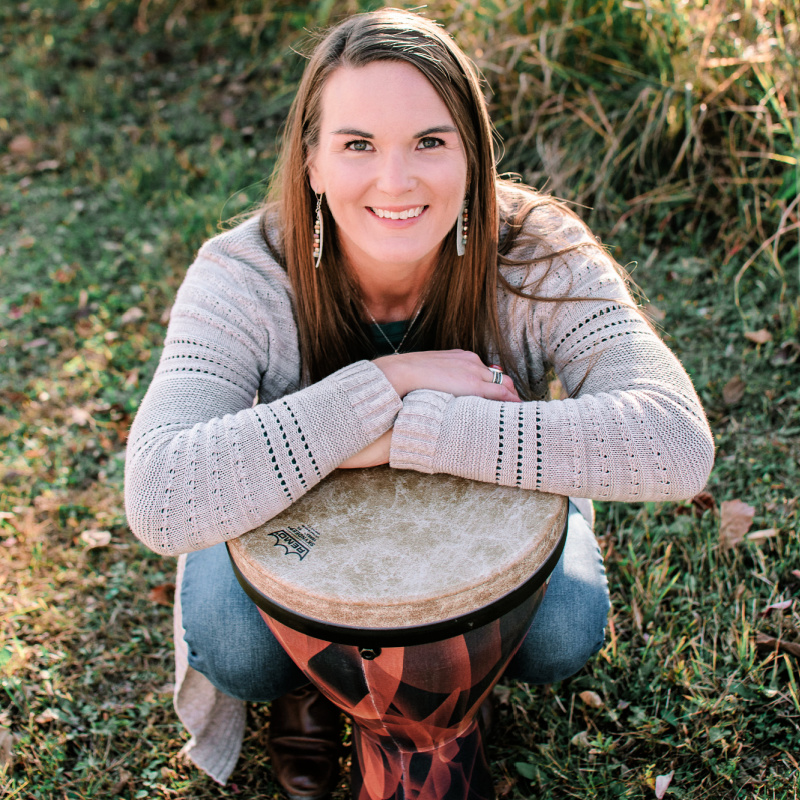Music is a universal experience of being human. Sounds and rhythm are everywhere in our lives, and as humans, we have a connection to sounds and rhythm in our environment and our bodies.
Music provides us with meaningful associations in our lives and can be a powerful source of support, comfort, release, and motivation.

A definition of music therapy
Music therapy (MT) is the evidence-based allied health profession that uses music and the relationship created with music to achieve emotional, physical, spiritual, musical, and social health and well-being. Music therapists are focused on the client’s experience of music and how specific music interventions can change and regulate the physical and emotional self.
MUSIC THERAPY IS:
An established health profession: Music therapists work in many health care settings with a variety of populations. These include hospitals, rehabilitation centers, hospice agencies, behavioral/mental health clinics, schools, private practices, and nursing facilities. Music therapists provide services to several populations within these settings, including premature babies in the NICU, children and adults with developmental delays, older adults with dementia disorders, and people with chronic illness.
A therapeutic relationship: Music therapists use music, and the relationship people have with music, to create a therapeutic atmosphere. Music is used to provide a structured, trusting, and open place for clients to express and share feelings, relieve stress and tension, and create meaningful experiences for self-awareness and growth.
Clinical and Evidence-Based: Music therapy research shows MT to be an effective integrative therapy for many health issues. MT research is published in a variety of medial, nursing, psychology, and developmental research journals. The Journal of Music Therapy and Music Therapy Perspectives are the field’s own research journals, demonstrating a wide variety of efficacy in music therapy.
A music therapist’s training
Music therapists have a Bachelor’s degree in Music Therapy from an approved college that focuses on music, clinical work, psychology, and development. After completion of the 4-5 year program, students complete a 6 month internship in an area of interest/focus. Interns are then eligible to sit for the national certification exam to become board certified. The credential MT-BC (Music Therapist-Board Certified) is given upon completion of this exam. For more information on the requirements, visit the Certification Board for Music Therapists’ website.
Music therapists have the opportunity for advanced training through Masters programs, Doctorate programs, and other specialty trainings in the field. To hold the MT-BC credential, music therapists are required to complete 100 hours of continuing education per 5 year cycle.
The music therapy process
Music therapists initially complete an assessment to determine:
- The client’s response and relationship to music,
- How music therapy interventions can address physical, emotional, cognitive, spiritual, and/or social needs, and
- What MT interventions will be the most effective in achieving the goals for the individual.
The assessment session usually takes between 1-2 hours, including paperwork, consultation, and direct care.
After completing the assessment, the music therapist will develop a treatment plan with the client and/or family with specific goals and interventions to address the health needs. The treatment plan will be discussed with the client and/or family.
The music therapist then provides routine sessions, implementing interventions to address the goals and interventions in the treatment plan. Documentation and ongoing evaluation is done throughout time of care.
Types of music therapy interventions
Music therapists are trained to use music and the human’s natural responses to music in order to create change, growth, and wellbeing in the mind, body, and soul.
Along with the creation of the therapeutic relationship, interventions used include (but are not limited to):
- Improvisation
- Instrument playing
- Singing
- Music Therapy Relaxation Techniques
- Music Therapy Entrainment
- Music Sedation
- Songwriting
- Song Discussion
- Music and Movement
- Music and Art
- Music Listening
- Music and Imagery
- Therapeutic Drumming



